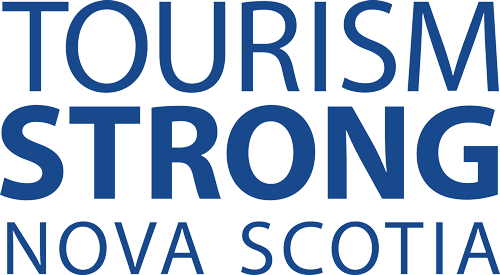With a strong and well-known tradition of hospitality, the people of Atlantic Canada are sometimes regarded as the friendliest folks in the world. That has always been a key element in the success of a thriving tourism industry in the Maritimes. Collectively, Tourism in Atlantic Canada generated more than $7.3 billion in tourism revenues in 2019.
Not only have these provinces worked together to build amazing experiences to showcase their destinations, they have also been one of the most successful regions in Canada in terms of preventing the spread of COVID-19.
So it’s not surprising that some of the best examples of how tourism businesses have maintained protective strategies against the pandemic, and also adapted their business models, have come from the Atlantic provinces (New Brunswick, Nova Scotia, Newfoundland and Labrador, and Prince Edward Island).
The province of Nova Scotia is a prime example. “Tourism businesses in Nova Scotia have been extremely supportive of measures to protect and ensure the safety of visitors,” says Darlene Grant Fiander, President of the Tourism Industry Association of Nova Scotia. “They were early adopters of new national and international standards to enhance cleaning protocols and instill consumer confidence,” she said, citing the Clean it Right program. “Tourism operators are resilient and have focused on improving quality and services as they ready for a broader travel re-opening.”
Preparations are also underway in Prince Edward Island in anticipation of tourism returning to the island province. “Our operators are keenly awaiting word on when border restrictions will be lifted, when we will be able to welcome visitors back to Prince Edward Island,” said Corryn Clemence, CEO of the Tourism Industry Association of Prince Edward Island. “These operators have spent considerable time in preparing for our traditional season to kickoff and to welcome not just Atlantic Canada, but the rest of Canada as well.”
New Brunswick is also keen to welcome tourists back to the picturesque province. “We are hoping to open the Atlantic Bubble in July to get the season started,” said Carol Alderdice, the President and CEO of the Tourism Industry Association of New Brunswick. “Our operators have been exceptional at implementing protective measures against the spread of COVID-19 for over a year and we are ready to greet our guests.”
Newfoundland and Labrador is hopeful that a turnaround in tourism fortunes is not far in the future. “This has been the most challenging time for our tourism industry, and even with an easing of restrictions, we are looking at a long road to recovery,” said Craig Foley, the CEO of Hospitality Newfoundland and Labrador. “But the public is eager to travel, and tourism operators here are prepared to start welcoming visitors, while following the required precautions.”
Tourism operators throughout Atlantic Canada have been busy preparing and ensuring when restrictions are lifted, visitors will feel welcome and take comfort in knowing health and safety protocols are in place.
LEADING BY EXAMPLE
Although the pandemic emerged at the mid-point of the project, Fredericton International Airport (YFC), located in New Brunswick’s capital, has completed construction on its much-anticipated terminal expansion project, and has done so under budget and four months ahead of schedule. The new YFC features improved amenities and security, plus additional space for public health precautions like physical distancing, ensuring the terminal building is ready for the future.
Kings Landing, in Prince William near Fredericton, is an open-air historic village museum that has been optimized for safe visits during the pandemic. Sanitizing stations have been placed in the historic buildings and barriers between visitors and staff have been installed. These measures have actually allowed Kings Landing to display more of its artifacts collection, says Alderdice of the Tourism Industry Association of New Brunswick. It reopens on June 9.
Thoroughly comprehensive sanitation and guest protection policies have been rolled out at many resort properties in Nova Scotia, including Fox Harb’r Resort in Wallace, Nova Scotia. The property has introduced an extensive menu of sanitation and protective measures, including a mandatory screening protocol for all staff, and mandatory screening at the front entry gates of the resort for staff, guests, members and suppliers.
Trout Point Lodge in East Kemptville, NS has expanded its outdoor and recreational offerings in response to demand from the regional market, says Grant Fiander of Nova Scotia’s Tourism Industry Association. It has done so while increasing its focus on sanitation, enhancing its housekeeping hygiene protocols with standards based on Health Canada, the Centers for Disease Control (CDC) and the World Health Organization (WHO) guidelines.
In PEI, many tourism businesses have innovated and adapted their product offerings to continue to operate throughout the pandemic. For example, businesses like the Prince Edward Island Brewing Company pivoted to new opportunities, and in this case, converted their event space into an online grocery/pick up location.
In addition, Experience PEI has introduced a new product called “PEI in a Box,” which offers a tempting selection of local products for shipping across the region or across the country. Four boxes have been designed and packaged, including a Lobster Edition, a Chowder Edition, a Cheese Edition and a Snack Edition, with prices ranging from $25 to $85.
Meanwhile, two competitors have found a way to work together in Newfoundland and Labrador to help preserve jobs and earn revenues. The two boat tour companies – Gatherall’s and O’Briens – combined resources in 2020, and will again team up to provide top rated tours in the summer of 2021. This has been instrumental in helping to keep employees on the payroll.
And those aren’t well-dressed customers seated at the tables in the space-restricted Exile Restaurant at the JAG Boutique Hotel in St. John’s, Newfoundland and Labrador. Those are stylish mannequins, given a full fashion makeover by local designers to help preserve a welcome ambience in the popular dining room. Clearly, necessity leads to innovation.
LOOKING BACK, LOOKING AHEAD
Darlene Grant Fiander from Nova Scotia says the pandemic has been instructive in demonstrating the role of tourism in the Canadian economy, and says it offers an opportunity to educate Canadians on the value of tourism.
“As the hardest hit sector, people are seeing that tourism is a Main Street industry,” said the association President. “Tourism has the highest multiplier effect in the economy, and when it is affected, it affects communities.
“Tourism also enhances the social, cultural and environmental health of communities,” she said. “I believe the pandemic has highlighted the role tourism plays in the Canadian economy and our way of life.”
For Corryn Clemence of Prince Edward Island, the COVID-19 pandemic has been the cause of the most devastating time ever for the tourism industry in Canada.
“While I feel that many Canadians have a general understanding of the effects on our industry, the true impacts are still not fully understood. It is our hope that Canadians will take the opportunity to explore our country and discover new and exciting destinations within Canada. In doing so, they will help kick start the rebuild of our tourism industry across the country.”
While acknowledging the bleak situation facing his tourism industry constituents, Craig Foley of Newfoundland and Labrador is also looking ahead to better days. “Almost everyone knows someone in the travel industry, and tourism employees make up the fabric of our communities. People love to travel, and to see how people live in other places. There is a confidence issue with travel now, but operators are ready to start offering travel products once confidence has been restored, and the restrictions are lifted.”
And Carol Alderdice in New Brunswick has faith in the empathy of Canadians, saying she believes that Canadians are aware of the devastating impact of the epidemic on the tourism industry, because without visitors there are no revenues.
“We believe they will want to support our industry and travel within Canada first,” she said. “Our New Brunswick citizens came through for us last summer by travelling throughout the province, supporting our operators and discovering the beauty in their own back yard. We believe they will do the same this year and stay in New Brunswick and Canada.”

